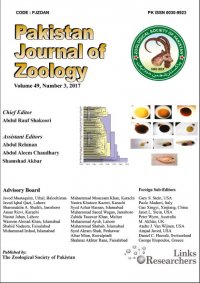Effect of Electroacupuncture and Transcutaneous Electrical Acupoint Stimulation on Tumor Related T Cells
Effect of Electroacupuncture and Transcutaneous Electrical Acupoint Stimulation on Tumor Related T Cells
Yuhua Chen1 and Song Lu2*
ABSTRACT
Objective of this study was to determine the effect of electroacupuncture and transcutaneous electrical acupoint stimulation on tumor-related T cells. C57BL/6J mice used in the study were randomly divided into control and electrical stimulation group. The tumor model was established by subcutaneously injecting MC38 colorectal adenocarcinoma cells into mice. The mRNA expression of pro-inflammatory factors IL-10, IL-6 and 1L-1β of the mice was analyzed by RT-PCR. The numbers of CD8 + T cells and CD4 + T cells were analyzed by flow cytometry. The protein expression of PD-1 and CD39 of the mice was analyzed by Western blot. The metabolic rate of CD8 + T was analyzed by fluorescent nutrient stain. Results showed that the mRNA of IL-10, IL-6 and 1L-1β in the electric stimulation group decreased compared with that in the control group (P<0.05). On the 15th and 25th day, the tumor volume of the mice in the electric stimulation group decreased compared with that in the control group (P<0.05). Compared with the control group, the percentage of living cells of CD8+T and CD4+T in the electric stimulation group increased (P<0.05). The protein expression of PD-1 in the electric stimulation group was higher and that of CD39 in the electric stimulation group was lower than that in the control group (P<0.05). The rate of oxygen consumption and extracellular acidification of CD8 + T cells increased after electric in stimulation group compared with the control group (P<0.05). To conclude, that electroacupuncture and transcutaneous electrical acupoint stimulation could inhibit the occurrence of tumors, promote proliferation and activation of T cells, and strengthen the immune clearance of tumor cells.
To share on other social networks, click on any share button. What are these?










